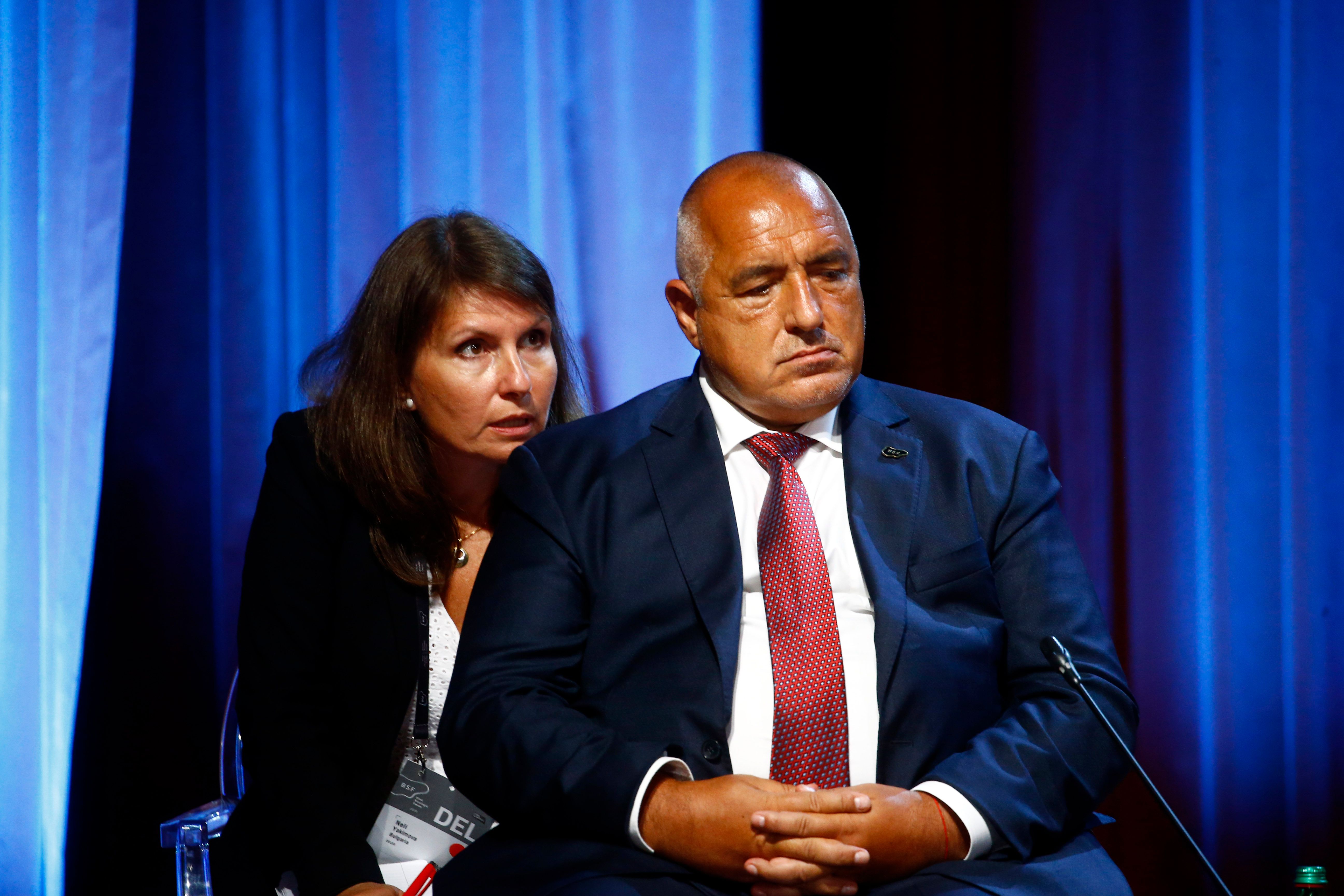Bulgaria’s Threat to Block North Macedonia’s European Integration

In March 2020, the Council of the EU agreed—more than a decade after the first recommendation of the EC—to open accession negotiations with North Macedonia. This happened after the implementation of the new enlargement methodology that France had forced by blocking this process in 2019. Earlier, for almost a decade, Greece had prevented then Macedonia’s European integration but relinquished this stance in 2018 after the Prespa Agreement changing the name of the country to North Macedonia. The change was possible after the conservative-nationalist government in Macedonia was replaced by a social democratic cabinet, which also signed the Treaty of Friendship, Good Neighbourliness and Cooperation with Bulgaria in 2017.
Bulgaria and EU Enlargement to the Western Balkans
Bulgaria declares support for the enlargement of the Union to the Western Balkans. The priority of Bulgaria’s EU Council presidency in 2018 was to make this process more dynamic, and in Sofia, for the first time in a decade and a half, the EU convened a summit that included the Western Balkans. Bulgaria presented itself as a promoter of the region’s interests in the EU, and Prime Minister Boyko Borisov even claimed credit for mediating the agreement between Macedonia and Greece though he had not participated. A year later, in June 2019, Bulgaria joined the Polish-Slovenian-Italian statement supported by 13 other EU countries, calling on the Council to start negotiations with Albania and North Macedonia. It also became co-host with North Macedonia of the 2020 Berlin Process Summit.
However, Bulgaria’s support for EU enlargement is weakening and becoming conditional. It was not among the nine Member States that made a counter proposal to the French concept of reforming this policy in December 2019. This was a consequence of the framework position presented in October by the Bulgarian government at the EU forum. It was supported by a cross-party resolution of the Bulgarian parliament. Ultimately, in March 2020, this became a formal government position that defined the conditions for supporting the further integration of North Macedonia.
Bulgaria’s Ultimatum
Its position was reflected in a leaked confidential memorandum to EU countries in August 2020. Bulgaria expects, among other things, the EU to not use in official documents the term “Macedonian language”, which Bulgaria does not recognise, rather only to use the vague “official language of North Macedonia” or if necessary, adding an explanation to it such as “according to the constitution of North Macedonia”. Bulgaria also wants to include to the “Other” negotiating chapter the obligation on North Macedonia to maintain good neighbourly relations (similar to the situation with Kosovo in Serbia’s negotiations with the EU).
At the same time, Bulgaria demands from North Macedonia “real progress” in implementing the Treaty of Friendship, including ending the alleged appropriation and stealing of Bulgarian history. By appealing to the “spirit” of the treaty, Bulgaria is pushing for it to include a new condition—the caesura of 1944, which does not exist in the Treaty, together with the demand that the countries’ common history should be exclusively Bulgarian until that time. Through this, Bulgaria wants to impose its interpretation dominant in its historiography that Macedonia, as a geographical region, belonged to the Bulgarian cultural and linguistic sphere, and the incorporation of what is today North Macedonia into Serbia at the beginning of the 20th century resulted in the denationalisation of the local Bulgarians. The culmination of this process it views as the establishment of the Macedonian republic in 1944 and the recognition of Macedonians as a state-nation of Yugoslavia, and the codified language at that time just a Serbisation of the Bulgarian dialect.
By threatening to veto North Macedonia’s negotiations with the EU, Bulgaria wants to settle in its favour the identity issues it has raised since the recognition of Macedonian independence in 1992. The Bulgarian authorities consider insufficient the Macedonian concessions in a joint expert commission on history and education established by the Treaty of Friendship, which are to constitute the basis for corrections to school textbooks. Under pressure from the threat in the memorandum, the North Macedonian authorities agreed to resume the commission’s work after a one-year break. Their reluctance to this forum stems from Bulgaria’s use of it to impose its interpretation of historical events, including the Bulgarian occupation of Yugoslavian Macedonia during World War II, as well as heroes common to both countries—mainly Goce Delchev, who died in the fight against the Ottoman Empire in 1903.
The Internal Bulgarian Context
The use of patriotic slogans, including on Macedonia issues, helps Prime Minister Borisov to rebuild his support. This is important ahead of the parliamentary elections scheduled for early 2021. Following the disclosure of the memorandum, his party, Citizens for European Development of Bulgaria (GERB), gained in opinion polls in October for the first time since anti-government protests started in July.
Borisov’s withdrawal from the dispute with North Macedonia would have a political cost. President Rumen Radev, who is in conflict with the government, and the Bulgarian Socialist Party, the largest in the opposition, would describe any possible concessions as national treason. Borisov also fears that his coalition partner, the nationalist United Patriots alliance, would use the cessation of the claims to leave the coalition before the elections and threaten GERB with minority governments. That is why Borisov tolerates the extremely anti-Macedonian statements of Deputy Prime Minister and Defence Minister Krasimir Karakachanov, the leader of the Internal Macedonian Revolutionary Organisation–Bulgarian National Movement, a party attached to Delchev’s political heritage.
Conclusions
Bulgaria is trying to use North Macedonia’s ambitions to start accession talks with the EU to resolve bilateral issues according to its own demands. The Bulgarian memorandum was not received positively by any EU partners, and Germany and Slovenia openly rejected it. Acceptance of the new Bulgarian condition by North Macedonia would not only contradict basic elements of its identity but would also mean, for example, recognising the history of Bulgaria’s cooperation with the Third Reich as its own.
Bulgaria’s approach undermines the policy of EU enlargement. It implies that candidates’ integration progress depends not only on the strict criteria of transformation and democratisation but also on nebulous new political conditions. On the other hand, Bulgaria’s veto threats rather do not risk intra-EU ostracism, as evidenced by earlier examples of the EU enlargement process to the Western Balkans blocked by Greece, Slovenia, and France.
Regardless of the content and timing of an agreement, Bulgaria’s demands set a dangerous precedent. While in the previous dispute between Macedonia and Greece, science excluded connections between the Slavic nation of Macedonians with the ancient Macedonia of Alexander the Great, Bulgaria goes beyond what is acceptable in EU practice of different interpretations of common history elements by Member States, demanding that the Macedonian historiography be replaced by the Bulgarian. This is a potential threat, for example, to the Serbo-Croatian language area, which, apart from Croatia, includes Bosnia and Herzegovina, Montenegro, and Serbia, all covered by EU enlargement policy. In each of them, the local Serbo-Croatian literary standard is named after the country and is considered a separate language. As they are not only mutually understandable but almost identical, each of these countries, already EU members, would be able to make similar demands as the Bulgarian ones during the accession negotiations of other countries.
Poland not only supports North Macedonia’s aspirations for EU membership but also has been helping it bilaterally in strengthening state institutions for a decade. Moreover, by means of multilateral instruments, including Visegrad cooperation, it is consistently striving to start accession negotiations with Albania and North Macedonia. By chairing the work of the V4, Poland—in line with its programme objectives—can provide a strong voice of support for the group in this decision. On the other hand, in bilateral contacts with Bulgarian partners, Poland may indicate both the benefits of North Macedonia’s membership in the EU and the threats resulting from that country remaining outside the EU, including the strengthening of the influence of Russia and Turkey there, which Bulgaria is particularly concerned about.



